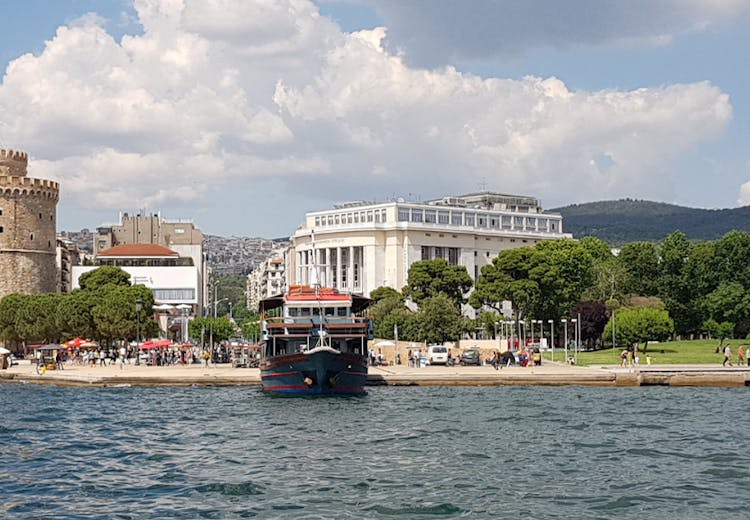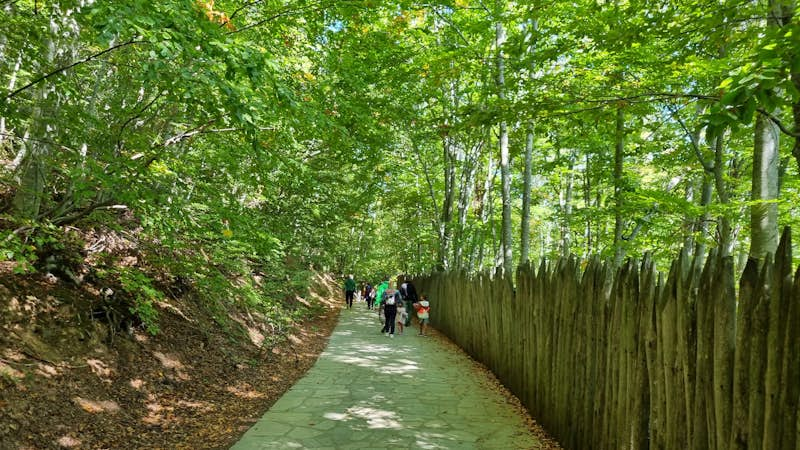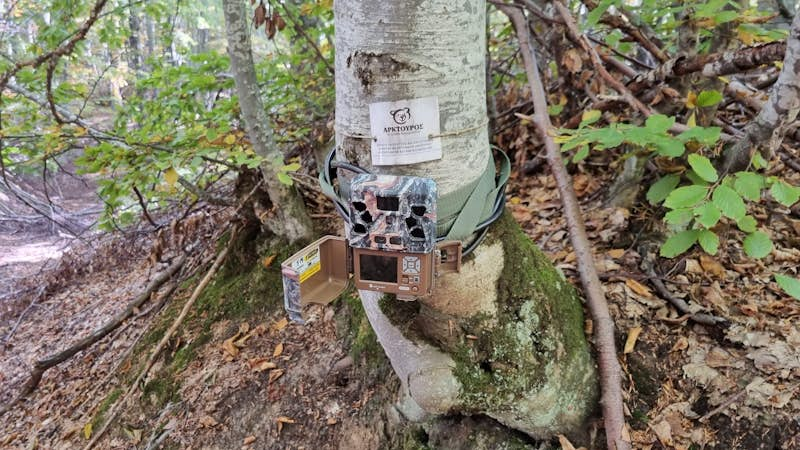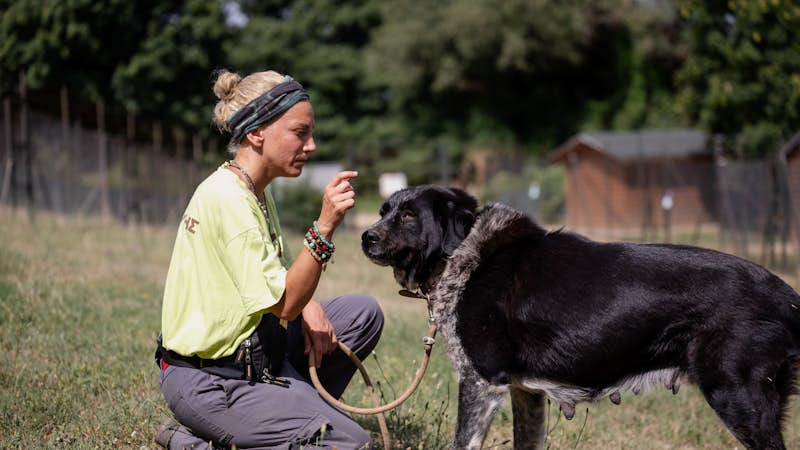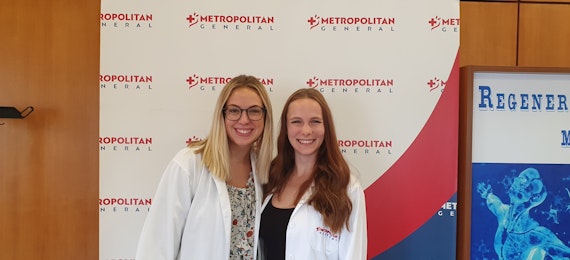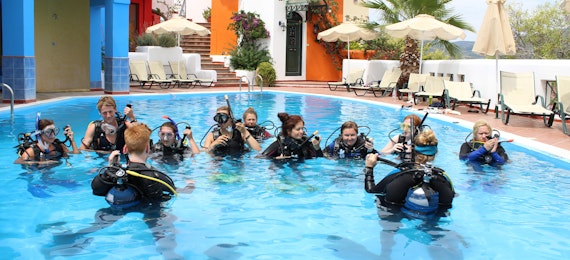
Wildlife Conservation Internships: Intern abroad in Thessaloniki, Greece
Intern alongside field experts and veterinarians in one of Greece’s most renowned Environmental Centers. As a Wildlife Conservation intern, you’ll focus on the protection of wildlife, fauna and natural habitats. With an emphasis on scientific methodology, Wildlife Conservation interns can assist with conducting research, providing environmental education, and raising public awareness related to biodiversity and conservation.
What to expect from your Wildlife Conservation internship:
- Assist field experts and veterinarians actively involved in wildlife conservation efforts.
- Help to protect and restore the biodiversity of Greece.
- Enjoy traveling and living in the charming village of Aetos, with easy access to wider Northern Greece and the Mediterranean.
Your internship abroad host organization:
- NGO Environmental Center
Internship details
Wildlife Conservation internships in Greece take place in the small village of Aetos. Come prepared to develop your skills and understanding of diverse conservation practices, assisting experienced and passionate experts, actively involved in wildlife conservation efforts.
This is an in-country internship, with accommodation included. You can explore remote internships, if you are looking for an internship program that you can undertake from home.
The Environmental Center which hosts Intern Abroad HQ’s Wildlife Conservation internships in Greece was initially established to aid in the prevention of unlawful bear and wolf imprisonment, along with the rescue of such wildlife. Today, the organization focuses on the protection of wildlife fauna and natural habitat, working to enhance scientific research, environmental education, and public awareness campaigns.
The center focuses on the conservation of large carnivores (including brown bears and wolves) and mountainous ecosystems in Greece and the Balkans. In addition to this, they assist in the breeding and donation of Hellenic shepherd dogs to local stock-breeders in an attempt to help remedy damage caused by wild carnivores.
As a Wildlife Conservation intern, you’ll collaborate alongside a team of experts and veterinarians actively involved in wildlife conservation efforts “in situ” and “ex situ”. An important part of your work will be the collection of scientific data, research and field tasks, allowing you to gain experience in practical and theoretical conservation topics, wildlife observation, species surveys and general environmental maintenance.
In all cases, interns should expect that the first week of your experience will focus on settling in, gaining some introductory knowledge, and establishing which research projects you would like to focus on for your remaining weeks. Ensure that you ask questions and provide feedback during the introductory period, so that your supervisor understands how you’re progressing and where your interests lie. This will help them to better understand important details, such as how quickly you learn, what you find challenging, your goals and expectations etc.
Our Wildlife Conservation internship placements are available from the first week of April until the last week of October. Conditions are hot in the summer months, especially during July and August. During the peak of summer, many Greek people take prolonged vacation and some of the other internship placements in Greece (such as Medical and STEM internships) are closed in July and August. Outdoor activities can be physically demanding and a reasonable level of fitness is required of participants, along with a passion for the environment and the great outdoors. Come prepared to be flexible and adaptable to conditions and site priorities. Preferences are subject to availability, as conservation and research priorities vary throughout the year.
Typical Schedule
-
Monday to Friday, up to 8 hours per day. Flexibility is a key requirement, as the unpredictable nature of tasks may require shift work (8am to 2pm or 2pm to 8pm). Interns should be adaptable, proactive and willing to help where it’s needed. You will be welcome to adapt your schedule or contribute extra hours, provided that discussion and agreement to do so takes place between you and your coordinator/supervisor. Scheduled activities can vary according to weather, season, and research requirements.
What are the career benefits of interning abroad as a Wildlife Conservation Intern?
Wildlife Conservation interns learn from a qualified and experienced supervisor, and can be involved in:
-
Species identification.
-
Field surveys and research.
-
Data collection.
-
Habitat management.
-
Animal husbandry.
-
Environmental education initiatives.
-
Public awareness campaigns.
Professional development opportunities:
-
Develop confidence and understanding related to practical applications of scientific methodology.
-
Contribute to public awareness campaigns.
-
Support meaningful conservation and wildlife preservation efforts.
-
Develop your communication skills through teamwork and outreach programs.
-
Gain practical skills and boost your employability, with guidance from Intern Abroad HQ’s Experiential Learning Curriculum to support your learning and cultural intelligence.
Are you eligible for this internship?
Submit a free application so we can confirm your eligibility and check availability for your preferred dates.
Not sure which program to join?
Greece photo gallery
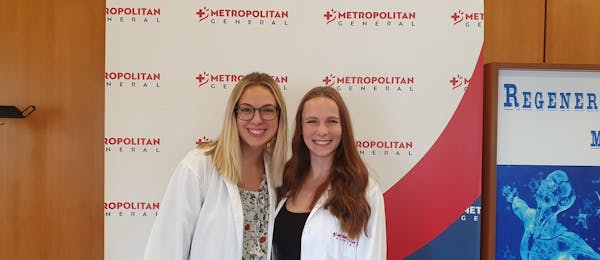
Academic credit available for all internships
Get course credit from your college or university while completing your internship abroad or a remote internship program. It's a great way to meet your academic requirements and gain valuable experience at the same time.
Learn about course creditProgram fees
Applying for our Wildlife Conservation Internship is completely free! The support package covers the assistance we provide in finding your internship and arranging your living accommodations in your host country, ensuring you thrive during your program.
Please note that a deposit of US$499 is required to confirm your place. The remaining balance (minus your initial US$499 deposit) is due at least 60 days before your internship start date.
Duration |
Program Fee (USD) |
|---|---|
| 4 weeks | $3,404 Equivalent to $121 /day |
| 5 weeks | $3,874 Equivalent to $110 /day |
| 6 weeks | $4,339 Equivalent to $103 /day |
| 8 weeks | $5,129 Equivalent to $91 /day |
| 10 weeks | $5,854 Equivalent to $83 /day |
| 12 weeks | $6,244 Equivalent to $74 /day |
- Airport pick-up
- Accommodation
- 24/7 in-country support
- Program orientation
- Dedicated support before, during, and after your internship
- In-country guidance for social and tourist activities
- Sourcing and securing your internship placement
- Personalization of your internship plan
- Coaching from your supervisor
- Documented portfolio of your experiential learnings
- Academic credit facilitation
- International reference letter
- Certificate of Internship Completion
- All meals
- All in-country transportation
- Transfer back to the airport at the end of your internship program
- Visa (if required), flights, travel insurance (mandatory), vaccinations, criminal background check
- Personal spending money for snacks, drinks, public transport, laundry, and leisure activities during your free time.
Activities and tourism
The quaint town of Aetos, where the Wildlife Conservation internship is based, has a population of approx. 360 people and hosts 2-3 small coffee shops, 2-3 taverns and 2 small supermarkets. The nearest large town is Amyntaio, located approx. 15 minutes away. Here you will find a number of taverns, coffee shops, supermarkets, parks, gyms and pharmacies. Placement staff regularly make journeys to and from the two towns and program participants are welcome to join the rides (when there is availability to do so) between Amyntaio from Aetos.
During your weekends you can explore the city of Florina (30 minutes by train from Amyntaio) and the beauty of the Western Macedonia region, with its rugged landscape, dense forests and stunning natural lakes. There are a variety of outdoor activities to enjoy including canoeing, horseback riding, mountain biking and trekking. Bikes will be available for you to use if you desire and your placement supervisors will be happy to make tourist suggestions and help with bookings.
If you’re keen to travel further afield, you can visit the city of Thessaloniki with its vibrant cultural and touristic attractions (roughly 2 hours by bus from Amyntaio). As the second largest city in Greece, you can find that Thessaloniki has it all - a rich history, fascinating archeological sites, amazing food, shopping and an entertaining cultural scene. Explore its range of local cafes, bakeries, restaurants and the bustling metropolis that is the port.
Arrival and Orientation
Wildlife Conservation internships begin every Monday, from the first week of April until the last week of October. Interns may choose to spend a minimum of 4 weeks, up to a maximum of 12 weeks.
Accommodation is included in the Program Fee. The accommodation is covered from the Sunday night before the Monday start date - interns are required to arrive no later than the Sunday before their Monday start date, as all orientations are held on Mondays.
Thessaloniki Makedonia airport (SKG) is the typical gateway, from which onward transportation to the Wildlife Research internship location of Aetos is required.
After arriving at Thessaloniki Makedonia airport, interns will be met and transported to the Thessaloniki regional bus station. From here, transportation via bus will be arranged to the town of Amyntaio. The bus fare for this trip will be pre-paid, as included in the internship Program Fee. The journey takes approximately 2 hours.
Upon arrival at Amyntaio, interns will depart the bus and be met by an internship host representative, who will escort the intern to the Wildlife Conservation internship site and its accommodation. The transportation time to the village of Aetos is approximately 15 minutes.
Buses depart daily from Thessaloniki Regional Bus station at 08:30am, 12:30pm, 15:30pm and 18:30pm. Interns will need to ensure their flight into the Thessaloniki Makedonia airport arrives in time for them to make their way through customs and to the bus station, in order to make one of these departures.
The last night of the accommodation is the Friday night of the final week, leaving interns free to depart on Saturday. Return bus tickets to the Thessaloniki regional bus station, via the town of Amyntaio, are also included in the Program Fee.
Extra nights of accommodation can be arranged in advance, if requested, and are subject to availability.
All participants are strongly advised not to book flights or make any other travel arrangements until they have first registered to confirm their internship placement.
Check what's required to visit Greece
Check out the widget below to learn about the visa requirements for the Wildlife Conservation internship in Greece, based on your country of residence.
Accommodation and WiFi
Wildlife Conservation interns in Aetos are accommodated onsite at the Environmental Center in one of two clean and comfortable, fully furnished apartments. It’s important to note that rooming arrangements may be mixed-gender.
Requests to share same-gender accommodation must be communicated well in advance, so that Program Managers can review capacity and availability. In most cases, between two to six guests can be accommodated per apartment so interns should be prepared to share living arrangements. Each guest will have their own single or double bed.
Bedding and furnishings are provided, as well as common areas such as lounge, kitchen and laundry facilities. Standard amenities include whiteware (i.e. washing machine, stovetop, fridge, microwave) and clean linen (i.e. bed sheets, pillows, towels). Accommodation does not always include WiFi (or the WiFi may be slower than what you’re used to at home). All interns are encouraged to purchase a local sim to ensure they have sufficient access to the internet.
Meals
Wildlife Conservation internships do not include meals, as affordable supermarkets are easily accessible and accommodation has kitchen facilities. The internship host will support students with weekly supermarket excursions. Greece has a thriving coffee culture which is delightful to partake in (there is also WiFi in almost all coffee shops and restaurants). Try Ellinikos (a favorite style of coffee) along with Freddo Espresso / Cappucino and Frappe.
For eating out, interns may budget approximately 3 - 5 Euro for a light breakfast (about US$5 - 7) and 5 - 10 Euro for a simple lunch (about US$5 - 12). There are ample dining options ranging from budget to high end. Greek cuisine offers a range of incredible dishes to experience, including well known classics such as Moussaka and Souvlaki. The Mediterranean diet features meat (cow, chicken, lamb), pasta, rice, pulses, vegetables, and a variety of fish and seafood. When in doubt, skip straight to dessert and order Galaktoboureko (with ice cream)!
Keep in mind that personal budgets for food and meals can vary enormously, according to individual spending habits and lifestyle choices.
With its Mediterranean climate, the summers in Greece are long, hot and dry and the winters are mild. The best time to visit for the hot weather is from mid June to mid September. The Wildlife Conservation internships are only available from the first week of May until the last week of September. This is a hot time of year, so please be conscious of this when planning your trip. The hottest month is July, in which the temperature may peak around 92°F / 33°C. Heatwaves in Greece may occur but they are usually not prolonged (that coast moderates temperatures with coastal breezes). Rainfall in Greece varies throughout the year, although the summer months are drier in comparison. Outside of Thessaloniki, the climate of Greece remains primarily Mediterranean. However, due to its mountainous regions, there is a range of microclimates and local variations.
